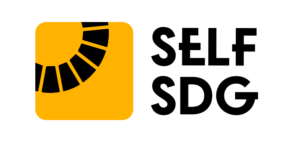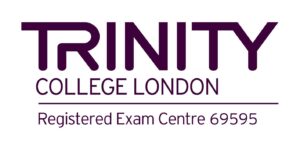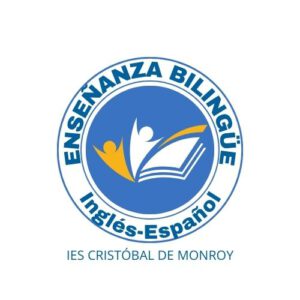All’s well that ends well…being
Llegamos al final del proyecto eTwinning “Checklist for well-being” en el que 1º ESO Bilingüe ha estado trabajando este curso escolar con otros seis centros europeos: BG/BRG Krems – Piaristengymnasium Krems (Krems an der Donau, Austria), IES Francisco Figueras Pacheco (Alicante, España), IES La Palma (La Palma del Condado, Huelva, España), Szkoła Podstawowa z Oddziałami Integracyjnymi im. Bohaterskich Lotników Polskich w Wiązownie (Wiązowna, Polonia), Základní škola Kosmonosy (Kosmonosy, República Checa), y 1st Experimental Junior High School of Syros (Syros, Grecia). El alumnado ha creado en equipos multinacionales listas de comprobación o “checklists” con actividades que promueven su bienestar y cuya realización puede contribuir al bienestar de otros adolescentes. Estas listas y fotografías que ilustran estas actividades están recogidas en la revista. “A Teen Booklet of Checklists for Well-being”, que se puede descargar en el código QR que aparece a continuación.

Hasta llegar a esta revista, el alumnado ha realizado otras actividades y tareas en la plataforma de eTwinning, como escribir tarjetas de Navidad al alumnado de Austria, y recibir las del alumnado de Polonia, participar en Padlets colaborativos, crear un logo para el proyecto o trabajar con el alumnado de otros centros gracias a la plataforma digital Digipad. Además, nuestro alumnado bilingüe ha aprendido a trabajar siguiendo una netiqueta y una seguridad digital.

Este proyecto eTwinning se enmarca dentro del tema “Bienestar /Well-being” (Objetivo de desarrollo sostenible nº 3”) trabajado en nuestro Programa Bilingüe este curso, y tema anual eTwinning 2024. Este proyecto se ha desarrollado en línea con nuestro proyecto Erasmus KA220-SCH Self-SDG, proyecto escolar que también trabaja los objetivos de desarrollo sostenible en la creación de una aplicación móvil.
En 1º de ESO el proyecto sobre “Bienestar /Well-being” ha dado lugar a una unidad integrada de las asignaturas bilingües: Biología, Matemáticas, Educación Física e Inglés, en las que se ha trabajado el bienestar o well-being del alumnado desde distintas perspectivas, como se puede ver en el Genially que aparece a continuación.
Agradecer a todas las personas que han hecho posible el desarrollo de este proyecto, familias, alumnado implicado, profesorado bilingüe de las áreas no lingüísticas, profesorado integrante del proyecto eTwinning y dirección del centro.
A mayor escala este proyecto se integra en el Currículum Integrado de las Lenguas (CIL) que ha trabajado este curso sobre el «Bienestar/ Well-being/ Bien-être» en las áreas lingüísticas y no lingüísticas del Programa de Enseñanza Bilingüe (1º a 4º ESO y CFGS Transporte y Logística), aunque este trabajo bien merece otra entrada, especialmente para mostrar agradecimiento a tantos profesores que se han implicado en él. Léela en la página web del instituto.
We’ve reached the end of the eTwinning project “Checklist for Well-being”, in which 1º ESO Bilingual students have been working throughout this academic year alongside six other European schools: BG/BRG Krems – Piaristengymnasium Krems (Krems an der Donau, Austria), IES Francisco Figueras Pacheco (Alicante, Spain), IES La Palma (La Palma del Condado, Huelva, Spain), Szkoła Podstawowa z Oddziałami Integracyjnymi im. Bohaterskich Lotników Polskich w Wiązownie (Wiązowna, Poland), Základní škola Kosmonosy (Kosmonosy, Czech Republic), and 1st Experimental Junior High School of Syros (Syros, Greece).
The students have worked in international teams to create checklists of activities that promote their well-being and that may also contribute to the well-being of other teenagers. These checklists and pictures that illustrate the activities have been compiled in the magazine “A Teen Booklet of Checklists for Well-being”, which can be downloaded using the QR code above.
In the run-up to this final magazine, students took part in a range of activities on the eTwinning platform, such as writing Christmas cards to pupils in Austria and receiving cards from Poland, collaborating through shared Padlets, designing a logo for the project, and working together with students from partner schools using the Digipad digital platform. Our bilingual pupils also learned to work online while following netiquette and practising digital safety.
This eTwinning project falls under the theme of Well-being (UN Sustainable Development Goal no. 3), which has been a key focus of our Bilingual Programme this year. It has run in parallel with our Erasmus KA220-SCH project Self-SDG, a school-wide project also linked to the Sustainable Development Goals, involving the development of a mobile app.
In 1º ESO, the Well-being project has led to an integrated unit across our bilingual subjects: Biology, Mathematics, Physical Education, and English, exploring student well-being from different perspectives. You can find examples of this work in the Genially presentation above.
We would like to thank everyone who made this project possible – families, participating students, bilingual teachers of non-linguistic subjects, the eTwinning project team, and school leadership.
On a broader scale, this project is part of the Curriculum Integrado de las Lenguas (CIL), which has focused this year on the theme of «Bienestar, Well-being, Bien-être» across both linguistic and non-linguistic areas of the Bilingual Education Programme (1º -4º ESO and the CFGS Transport and Logistics). However, this work truly deserves a separate post, particularly to express gratitude to so many teachers who have been deeply involved in it. Read about it in the school website.





